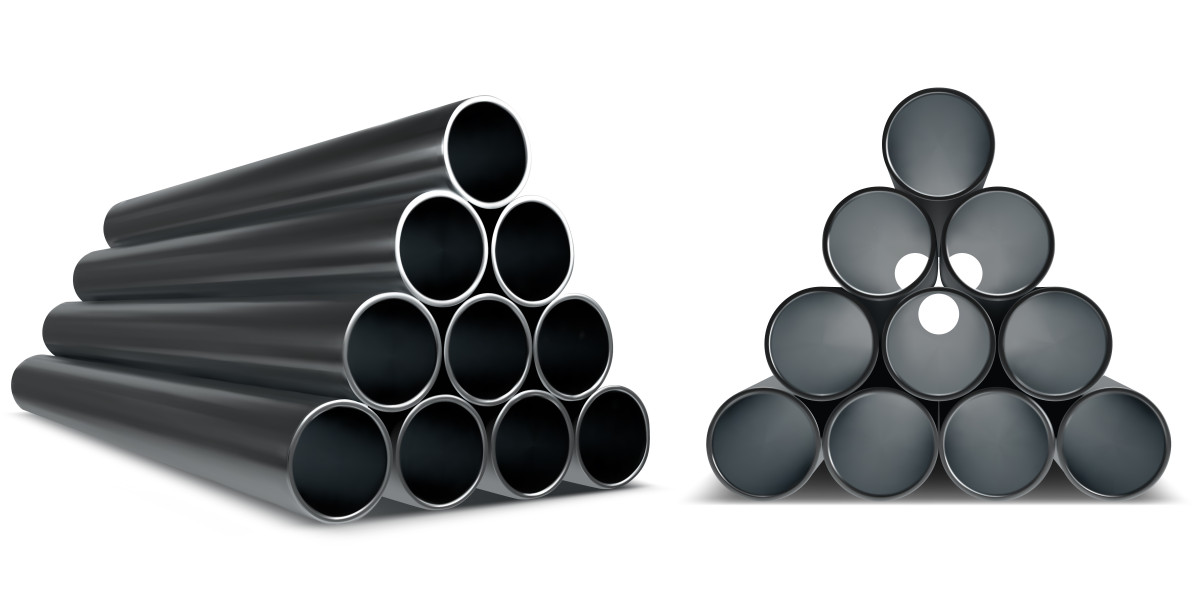Steel pipes are integral components used across various industries, from construction to manufacturing. Their durability, versatility, and cost-effectiveness make them indispensable in numerous applications. This guide will delve into the types of steel pipes, their applications, and the benefits they offer to different sectors.
Types of Steel Pipes
- Carbon Steel Pipes: Widely used in industrial applications due to their high strength and flexibility. They are ideal for transporting gases and fluids under high pressures and temperatures.
- Alloy Steel Pipes: These pipes include elements like chromium, molybdenum, and nickel, enhancing their corrosion resistance and strength, making them suitable for harsh environments.
- Stainless Steel Pipes: Known for their corrosion resistance, stainless steel pipes are preferred in the chemical, water treatment, and food processing industries.
- Galvanized Steel Pipes: Coated with a layer of zinc to prevent rust, these pipes are commonly used in outdoor constructions like fencing and railings.
Uses of Steel Pipes
- Construction: Steel pipes are used as structural components in buildings, bridges, and infrastructure due to their robustness and ability to withstand environmental pressures.
- Oil & Gas Industry: Essential for the transportation of oil and natural gas, steel pipes can handle the high pressure and corrosive nature of these materials.
- Manufacturing: Employed in machinery and tools due to their ability to endure high stress and heat.
- Automotive Industry: Integral in manufacturing vehicle chassis, which demands materials that can tolerate extreme conditions and stress.
- Water Transport: Utilized in water mains, delivering both potable and non-potable water, and in sewage systems, due to their longevity and leak-proof properties.
Benefits of Using Steel Pipes
- Durability: Steel pipes are highly durable, capable of lasting decades without significant degradation, even under harsh conditions.
- Efficiency: Their smooth internal surface reduces resistance to fluid flows, ensuring efficient fluid transport with minimal energy loss.
- Recyclability: Steel is 100% recyclable, which reduces the environmental impact and supports sustainable practices in industries.
- Cost-Effectiveness: Although the initial investment might be high, the long lifespan and low maintenance costs of steel pipes make them a cost-effective choice over time.
- Versatility: The various types of steel pipes available make them adaptable to different needs and environments, enhancing their usability across industries.
Challenges in the Steel Pipe Industry Despite their numerous advantages, the production and use of steel pipes come with challenges such as the susceptibility to corrosion in certain environments, the need for regular inspections, and the environmental impact of steel manufacturing processes.
Future of Steel Pipes Innovation in material science and manufacturing techniques continues to improve the quality and efficiency of steel pipes. Advances such as enhanced corrosion resistance treatments and the development of high-strength, lightweight steel grades are poised to broaden the applications and efficiency of steel pipes.
Conclusion Steel pipes play a critical role in modern infrastructure and industry. Their adaptability, efficiency, and strength make them essential in numerous applications, driving advancements in technology and construction. Understanding the different types of steel pipes and their specific uses allows industries to choose the best solutions for their needs, ensuring reliability and effectiveness in their operations.
More Read: Steel pipe | ERW Pipes








